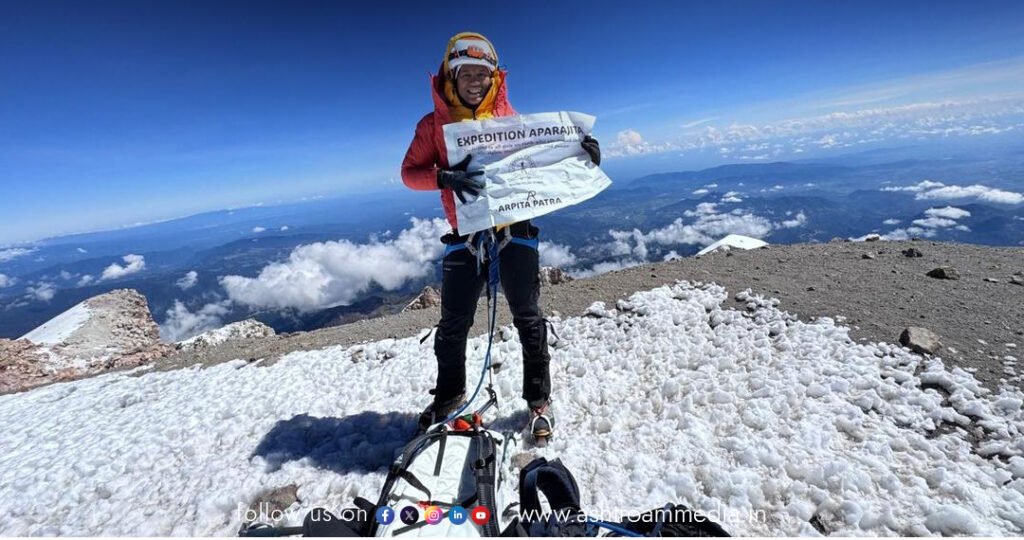
Professor Arpita Patra, a faculty member at the prestigious Indian Institute of Science (IISc), has achieved an extraordinary mountaineering milestone by successfully summiting the highest volcanic peaks across four continents. This accomplishment places her in a select group of climbers and marks significant progress in her quest to complete the “Volcanic Seven Summits,” a global challenge involving the highest volcano on each continent.
Her remarkable high-altitude journey accelerated in the past year. Patra scaled Africa’s highest peak, Mount Kilimanjaro (5,895 m), and Europe’s Mount Elbrus (5,642 m) in 2024. She continued this momentum in mid-2025, conquering Mount Giluwe (4,367 m) in Papua New Guinea, the highest volcano in Oceania.
Most recently, she successfully summited North America’s highest volcanic peak, Pico de Orizaba (5,636 m) in Mexico.
What makes Professor Patra’s achievement particularly noteworthy is her ability to balance these grueling expeditions with a demanding, full-time academic career. Pursuing a passion for high-altitude climbing requires rigorous physical training, meticulous logistical planning, and significant time for acclimatization, all of which she manages alongside her research and teaching responsibilities at IISc.
The expedition on Pico de Orizaba, Mexico’s third-highest peak, was her toughest climb yet. Patra and her team had to navigate steep, challenging snow slopes and endure extreme temperatures. The ascent involved a technical and hazardous climb via the Jamapa Glacier route, forcing the team to navigate deep crevasses and icy terrain in the oxygen-thin “death zone” above 5,000 meters.
Professor Patra’s success is a testament to her determination, resilience, and precision. With four of the seven volcanic summits now complete, the academic and mountaineering communities are watching to see if she will next target the remaining three: Ojos del Salado (South America), Mount Damavand (Asia), and the formidable Mount Sidley (Antarctica).


